Religious Leaders Speak Out In Support Of Poisoned Schoolgirls
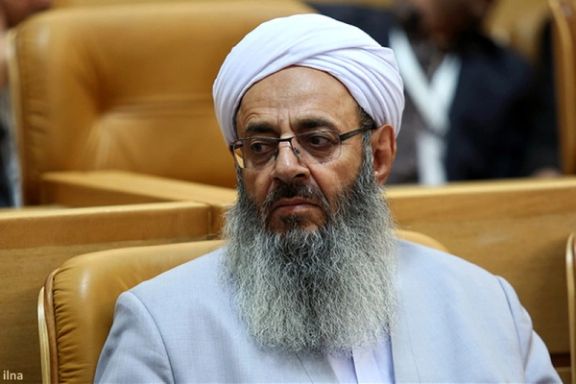
Mowlavi Abdolhamid, the most influential Sunni cleric in Iran, has slammed the Islamic Republic over chemical gas attacks on schoolgirls, describing them as a method of crackdown.

Mowlavi Abdolhamid, the most influential Sunni cleric in Iran, has slammed the Islamic Republic over chemical gas attacks on schoolgirls, describing them as a method of crackdown.
The outspoken cleric said in his Friday prayer sermons that inaction by authorities in not identifying the perpetrators is a form of revenge and repression against young people who support antigovernment protests of ‘Women, life, and freedom.’
Referring to the reports that blame “an unknown group” for the attacks, he said, "What is this group that has not been identified yet? Who believes that security and military officials do not know what happened? When even a small and trivial problem is quickly dealt with, how can incidents of this magnitude remain unresolved?”
"Many are of the opinion -- and this assumption is close to the truth -- that these poisonings are a form of suppression of protests; both by the group that targets the girls and those who are aware of the circumstances of these incidents but do not stop them," Abdolhamid noted.
Some prominent Shiite clerics have also spoken out about the mysteries surrounding the attacks, which have left around 1,000 girls sick or hospitalized since November.
On Friday, reformist politician and jurist Rasoul Montajabnia said that those behind such attacks believe that literacy for girls is “dangerous,” adding that some religious fanatics resort to such actions in the name of zeal and defending hijab. He also rejected the idea that the country’s intelligence agencies are incapable of identifying the attackers. Similar remarks were made by senior clerics, including Hossein Noori-Hamedani and Abdollah Javadi Amoli.
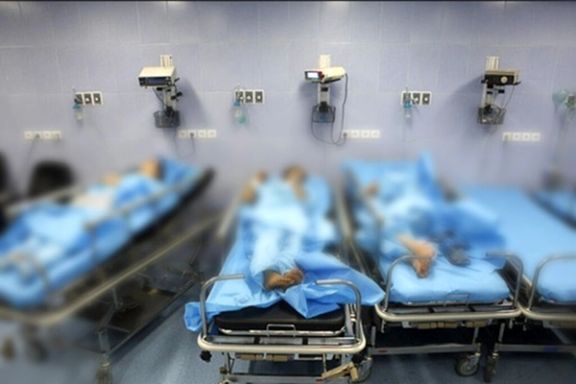
Rights groups have spoken out in support of the scores of Iranian schools targeted by mysterious chemical gas attacks since November which have left hundreds of girls sick and many hospitalized.
Amnesty International and UNICEF issued statements on Thursday to condemn the attacks, which many have described as intentionally ignored by the regime.
Schoolgirls have been “at the forefront of protests and many bravely defied discriminatory compulsory veiling laws,” Amnesty said, noting that such attacks raise concerns of increasing gender-based violence against women and girls for standing up for their rights.
On Friday, German Foreign Minister Annalena Baerbock, joined foreign leaders in condemning the attacks. She said, "Girls must be able to go to school without fear... This is nothing less than their human right. All cases must be fully investigated."
White House national security spokesman John Kirby expressed deep concerns about the poisonings as the world demands answers as to who the culprits are and what the agent being used is.
At least 58 schools in one-third of the country’s provinces have been attacked by unidentified gases since November 30 when the first case of poisoning among schoolgirls was reported in the religious city of Qom. Around 1,000 students have become ill with the mysteriously dispersed, unidentified fumes so far.
The country's interior minister, Ahmad Vahidi, an ex-IRGC top officer wanted by Interpol for his part in the bombing of a Jewish community center in Buenos Aires in 1994, has been tasked with leading the investigation, though has so far denied fowl play.
A teachers’ union in Iran and some other activists have urged people to stage a protest on Tuesday to condemn school gas attacks, demanding an explanation from the Supreme Leader.
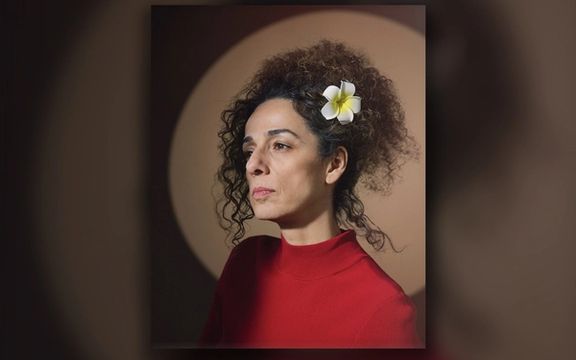
Iranian activist Masih Alinejad, the target of terror plots by regime intelligence, has been nominated for the prestigious TIME magazine Women of the Year list.
Journalist Alinejad, now a face of the revolution, has lived in exile in the US since 2009 after exposing corruption in Iran. Seen as a profound threat to the regime led by Ayatollah Khamenei, Alinejad said: “Women of Iran are his [Khameini’s] biggest enemy.”
She has refused to stay silent in spite of repeated threats to her life, which resulted in the indictment of four men by the US in 2021, planning to kidnap the vocal activist. She has helped bring the revolution to the global stage during five months of unrest triggered by the death in custody of Mahsa Amini, arrested for the inappropriate use of her hijab.
Alinejad is one of 12 women globally who made the list, which highlights leaders who are using their voices to fight for equality. They come from a range of backgrounds from activism and government to sports and the arts.
They include Anielle Franco who turned to politics after her sister Marielle, a city councilor in Rio de Janeiro who campaigned against police violence and corruption, was assassinated in 2018. Now, as Minister for Racial Equality in Brazil’s new government, she is channeling her grief into action.
Others include Ukrainian LGBTQI activist Olena Shevchenko, Pakistan's Ayisha Siddiqa, who after witnessing the devastating effects of climate change on her community was inspired to speak up, delivering a powerful speech at November’s UN Climate Conference in Egypt on the urgency of climate justice.
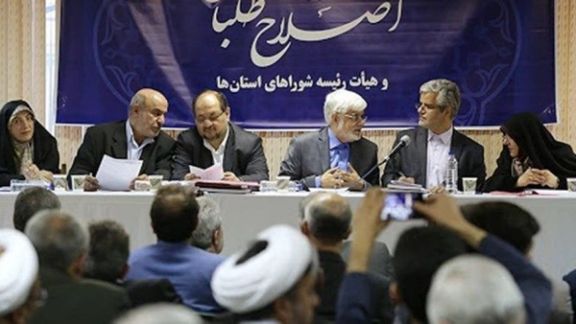
Prominent Iranian reformist figure Hossein Nourani-Nejad says Iran's umbrella Reform Front is not powerful enough to engage in influential action and needs overhaul.
Nourani-Nejad wrote in a commentary in the reformist daily Eteamadon Wednesday that a number of parallel institutions should be created to enhance the performance and dynamism of the Reform Front.
The politician's comment came one day after the chairman of the Reform Front Behzad Nabavi, nicknamed by Iran's political activists as "the old guerrilla" announced his resignation.
Nourani-Nejad wrote that the need for democracy in Iran demands a new coalition. "This comes while the front is expected to start a new round of activity, but no one expects any particular change in its approach.” He argued that the Reform Front does not show any inclination other than advocating minor reforms, calling for democratization, and representing active reformist parties.
The politician was probably referring to the rigidity of the structure and nature of the grouping which is often criticized to be operating like a clan rather than a political organization. One of the flaws in this system's traditional structure is that former President Mohammad Khatami is believed to be its leader while he has always rejected or ignored the suggestion.
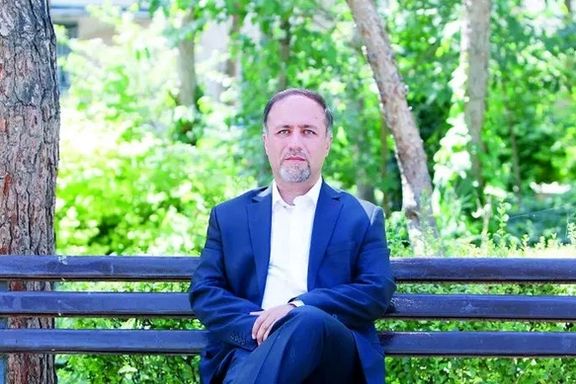
Protests since September have shown that a significant and younger segment of Iranians no longer believe that the Islamic Republic can be reformed and they demand a secular and democratic political system.
The reform front lost its popularity mainly because of the performance of its members in the previous parliament (2016-2020). Ironically, the Reform Front's chairman at the time, Mohammad Reza Aref, kept silent in the parliament for four years! In the subsequent election the reformists won less than 3 percent of the votes partly because of his inaction.
Nourani-Nejad said that keeping the Front as it is will further weaken it or lead to fragmentation within the front. Meanwhile, he called for a more broad-based alliance among pro-reform groups and parties as a solution that might revive the grouping.
Reformist daily Arman-e Emrooz carried a commentary Wednesday about reactions to Reform Front chief's resignation. Many believe Nabavi's resignation was motivated by reasons that stemmed from within the front, although Nabavi himself has said: "My two year term of office as chairman has ended so I no longer have any position. I am also old and ailing and unable to contribute."
Some members however believe that the resignation is a reaction to radical positions adopted by some other reformists. Reformist activist Fatemeh Rakei said Nabavi has resigned probably because popular demands have become more intense and reformists should come up with a strategy to position themselves in the changing political environment.
Nabavi, born in 1942, a senior member of the leftist Islamic Revolution's Mujahedin Organization (IRMO) has held positions such as deputy prime minister and Minister of Industry in the 1980s. He was one of reformists who was arrested and reportedly tortured during the post-election unrest in 2009. During the recent protests Nabavi was one of the first politicians who took a clear stance and "called for the continuation of the reform movement but added that reformists cannot join the protests in the streets."
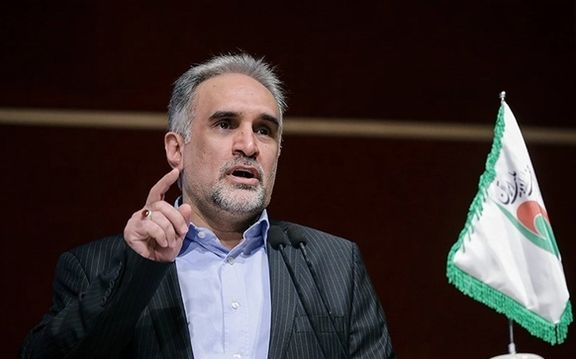
Another political activist Ahmad Hakimipour told Arman that many reformists had already decided that they needed essential changes and reshuffling. It is not clear where the school of thought that the Islamic Republic can be reformed is headed. He added that the reforms, as we know it, is not attractive for the younger generation who took to the streets during the past months.
Mostafa Rasteh Moghaddam, another reformist figure welcomed Nabavi's resignation as an event that can lead to some kind of rotation of elites and put an end to the Front's rigid structure and approaches.
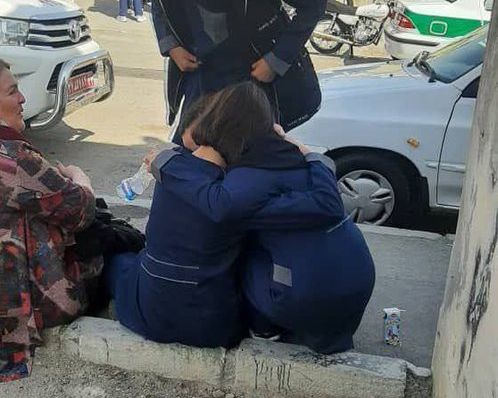
A teachers’ union in Iran has urged members to stage a protest Tuesday to condemn school gas attacks while another group has demanded an explanation from the Supreme Leader.
At least 58 schools in one-third of the country’s provinces have been attacked by unidentified gases since November 30 when the first case of poisoning among schoolgirls was reported in the religious city of Qom. Around 1,000 students have become ill with the mysteriously dispersed, unidentified fumes so far.
Qom, capital of a central province of the same name with 30 schools, Ardabil, capital of the northwestern Ardabil province with 9, and the capital Tehran with 8 schools lead the list of the most targeted cities.
The Coordination Council of Iranian Teachers' Trade Associations on Wednesday released a statement and urged teachers and the people of Iran to stage rallies on March 7 outside the parliament in Tehran and in front of the education department headquarters in other cities to demand urgent resolution of school attacks as well as teacher’s own problems including a wage increase for the next year that takes the factor of inflation into account.
Iranian Teachers' Trade Association, a national teachers’ union, in a statement Wednesday criticized the government for three months of denials of the attacks on girls’ schools.
“There is strong suspicion that the purpose of the attacks is quashing the Woman, Life, Freedom movement by instilling fear among girls and their families,” the statement said while demanding Supreme Leader Ali Khamenei and other top religious figures to condemn the attacks expressly and decisively.
Iranian Teachers' Trade Association called the attacks “bioterrorism” and said expecting concrete action against perpetrators appears unrealistic given the authorities’ failure to offer concrete explanations about similar incidents, such as a spate of acid attacks in Esfahan in 2014 against women whose hijab was not deemed appropriate. Authorities never pursued religious fundamentalists who were suspected in the acid attacks.
In the past few years, the union whose members are highly critical of the regime has organized several nationwide teachers’ protests and strikes against low wages and for recognition of equal rights with other civil servants. Members, including some of the union’s leaders such as Rasoul Bodaghi, are often subjected to harassment, prosecution and imprisonment for their union activities.
Iranian Teachers’ House, another teachers’ association, in a statement Wednesday also demanded Khamenei to be accountable for the attacks that it called “state-sponsored terrorism and said “the theory that the state is behind the terror [attacks]” would be more plausible if he did not publicly address the issue.
“Targeting girls’ schools is a malicious act against the progressive Woman, Life, Freedom slogan [of protesters]. Obviously, the leader and the security and military bodies under his command will be responsible for any incidents [that happen],” the statement said.
Iranian Teacher’s Islamic Association, Iran Teachers’ Association, and Teacher’s Society of the Islamic Iran also wrote a joint letter to Interior Minister Ahmad Vahid who was tasked with probing the incidents of poisoning in schools by President Ebrahim Raisi on Wednesday. The three groups also requested a permit to stage a rally outside the ministry in Tehran on Wednesday.
Opposition parties and groups often complain their requests for rally permits are always ignored by the ministry.
In an Instagram post Thursday, the office of Unicef in Tehran said schoolgirls’ poisoning could negatively impact the high education coverage among children, especially girls, achieved over the past decades and offered to provide any needed support.

Porn videos have been shown as a means of deterrence in several girls' schools across Iran, threatening them not to take part in "Women, Life, Freedom" protests.
In two separate reports, the UK-based website Iranwire has mentioned that "porn" videos and even "human sex with animals" were shown to female students in Tehran, Mahshahr, Esfahan and Eslamshahr.
The incidents happened as hundreds of schoolgirls - who were at the forefront of anti-regime protests - have been hospitalized in various cities since November 30 after mysterious gas poisonings at schools. This week alone saw hundreds more girls attacked in several cities.
One of the students said that regime officials told the students “if you participate in protests, the same will happen to you”.
Due to the "shock" caused by watching such graphic scenes, some of the girls had been taken for medical care.
When families objected to the twisted tactic, education ministry officials threatened that they will hand them over to the security forces.
One mother whose daughter had been subjected to the films, said: “The principal said we wanted the girls to see the results of sexual revolution."
Hamid Rasaei, a hardline member of parliament, earlier stated that the goal of the protesters is “to sleep with someone every night and graze like animals”.
The warped measures imposed on the girls reflect the threat the regime sees is posed by the young female generation, leading the protests from the streets, schools and universities.
It is the first time in recent history that women have played such a visible role in anti-regime uprisings, this most recent round triggered by the death in custody of Mahsa Amini, arrested for the inappropriate use of her hijab.
The student movement in Iran has spread nationwide and videos and images show young women cutting their hair, tearing or burning the photos of Islamic revolution founder Ruhollah Khomeini and Supreme Leader Ali Khamenei, and burning their headscarves.